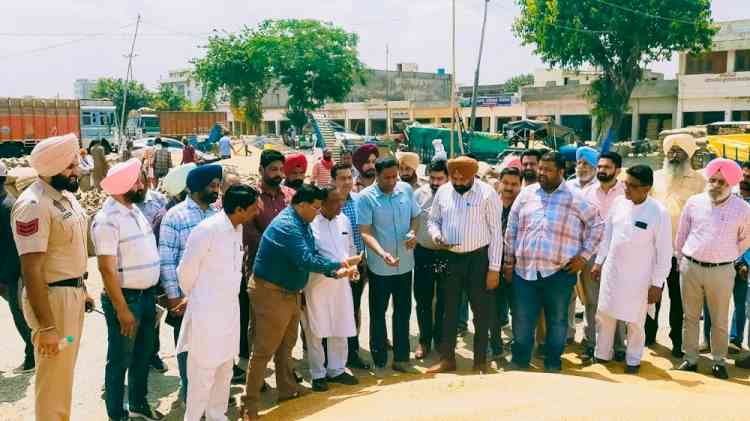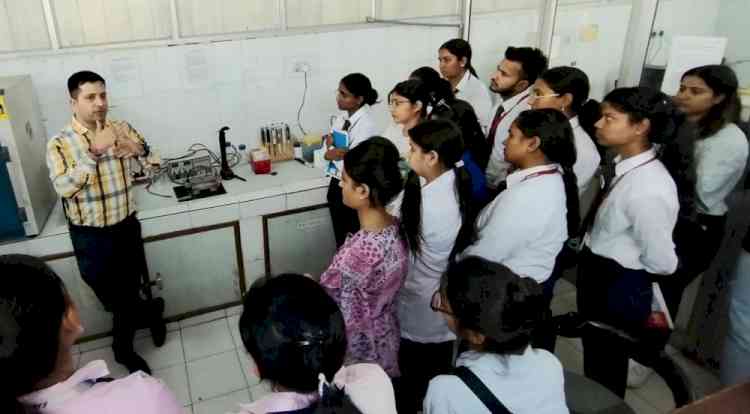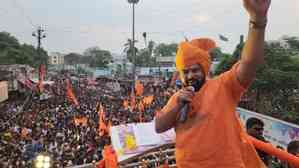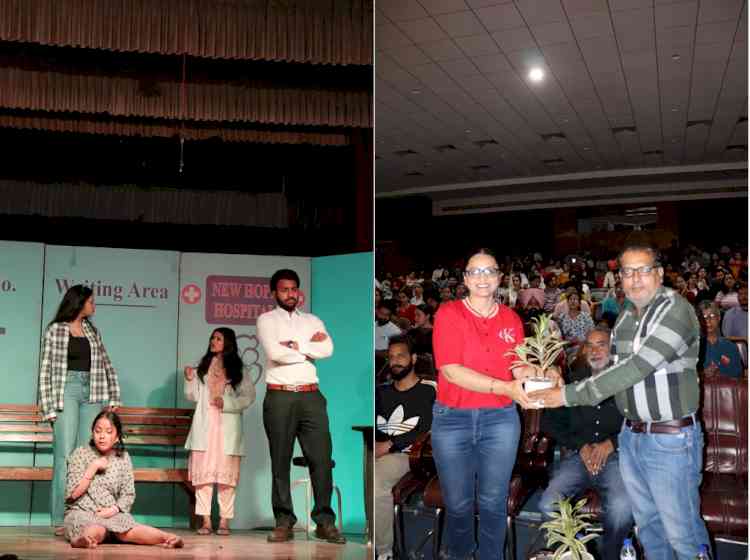India loosing its Biodiversity fast: US Scientist
Author(s): City Air NewsChandigarh, November 21, 2016: Noted Botanist and Environmentalist, Dr.Peter Hamilton Raven FMLS delivered a talk on ‘Biodiversity and Future of India’ at the Department of Botany, Panjab University (PU) here today....

Chandigarh, November 21, 2016: Noted Botanist and Environmentalist, Dr.Peter Hamilton Raven FMLS delivered a talk on ‘Biodiversity and Future of India’ at the Department of Botany, Panjab University (PU) here today.
President Emeritus, Missouri Botanical Garden, St.Louis, Missouri, USA Dr.Peter Hamilton Raven divided his talk on status of Biodiversity in India, reasons for the present status, and how can we deal with it, in the ongoing Age of Extinction. PU Vice Chancellor Prof Arun Kumar Grover presided over the lecture.
Large number of PU faculty members, research scholars and students participated in the interactive session.
Dr. Peter Hamilton Raven shared many fascinating facts on biodiversity by stating that there are around 10-12 million eukaryotic species around the world. The rate at which depletion of biodiversity is taking place is alarming. Dr Raven
further added that the world has entered into the 6th major age of extinction and we live in a rapidly evolving and unique world with plants majorly contributing to making it what it is. They have a role in maintaining the ecosystem, nearly two
third of the drugs are derived from them, and they also add to the aesthetics, refreshment, spirit and joy of our environment. In addition to all this, plants are potential candidates for new drug discovery he further added.
Dr Raven traced the journey of man from the pre-historic men to the present day Homo-sapiens. He explained as the prehistoric men were hunters and gatherers and travelled in small groups, they had to cultivate the attitude of selfishness and
greed which was absolutely essential to survive in that scenario. But as the man progressed, he invented technology for a better life and entered the space-age but he retained the ethics of the stone-age. With the advent of agriculture, came in
settlement and with the extra source of food at hand, the populations began to expand at alarming rates. But sadly, half of the total population in deficient in some vital nutrient and nearly half lives in poverty despite the fact that one third
of the surface is under agricultural.
Comparing the growth of population and consumption of India and China, Dr Raven stated that China is better placed in this context in comparison with India.
Dr Raven also highlighted that India is destroying its cultivable land as it is using it too hard. He also showed concern over the traditional practices of burning of the rice straw to prepare the field for the next crop and lesser inputs from our
Government to bring in newer technologies in agriculture to alleviate the pressures on the land and stabilize the agricultural sector. India is largely dependent on our biological diversity and still we do not have a National plan on the Conservation of
Plants in India.
Dr Raven concluded, by stating that we will never learn about all the species because they are too many of them and too less number of specialists to work on them. Therefore, we need to find the priority areas and the vulnerable areas and
work on those areas and pass on something worthwhile to the future generations before it goes down the drain. He emphasized on the equality and stability by giving the example of earth as a giant spaceship. Empowering the women and children is fully and completely essential step in attaining stability and relative sustainability and India, with its philosophical legacy, can emerge as the ‘moral’ power of the world.
During the question answer session, Dr Raven, strongly advocated the safety and use of genetically modified food and crops. He answered queries dealing with patterns of agriculture, invasive species, and ways and means to control pollution
in India. In a query on the prospects of second green revolution in India, Dr Raven showed dismal response and said that a second green revolution was highly unlikely in India owing to the prevailing socio-cultural and ecological scenario. He also
emphasised on the need to work locally first and find solutions.

 cityairnews
cityairnews 
















